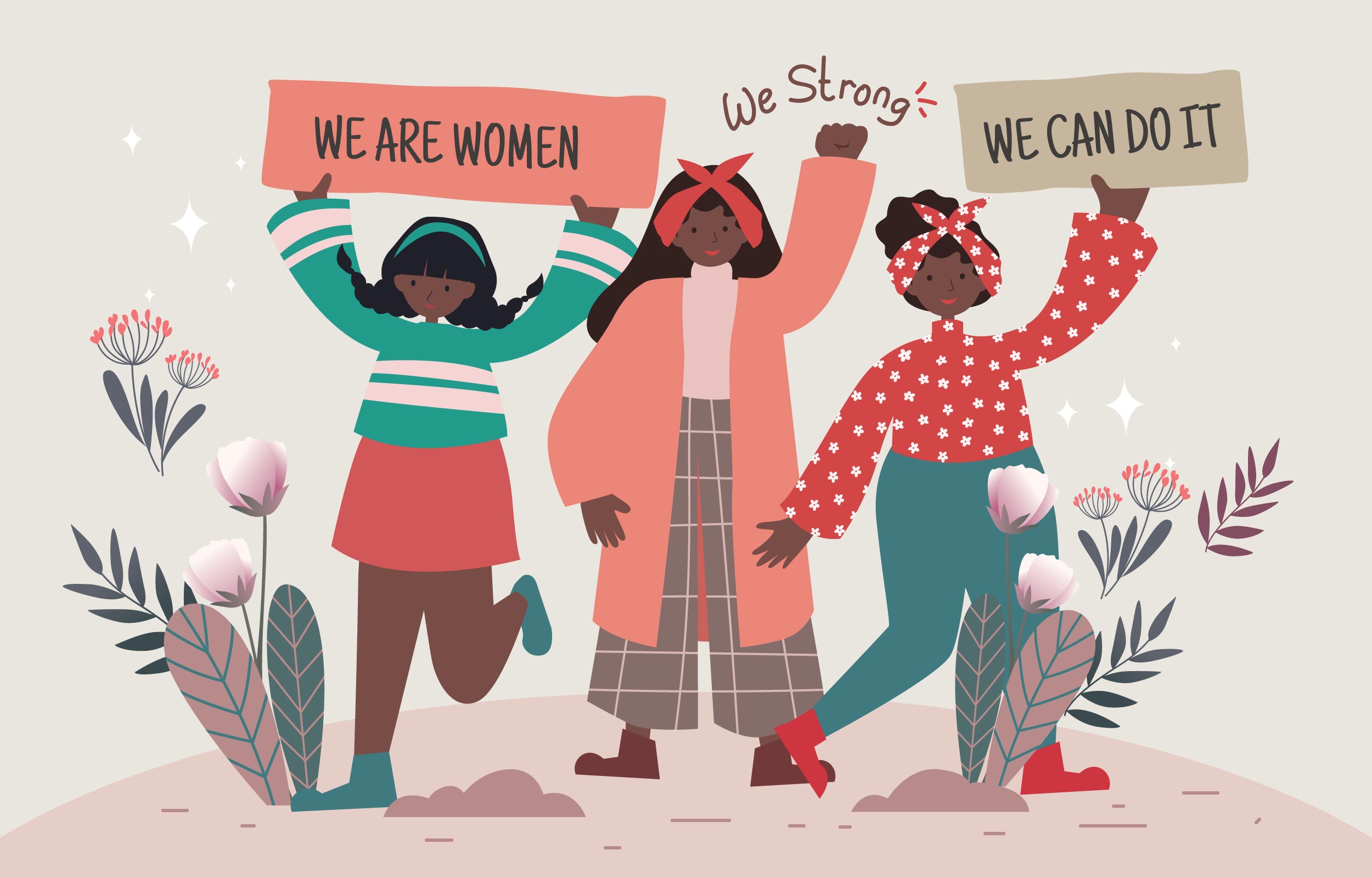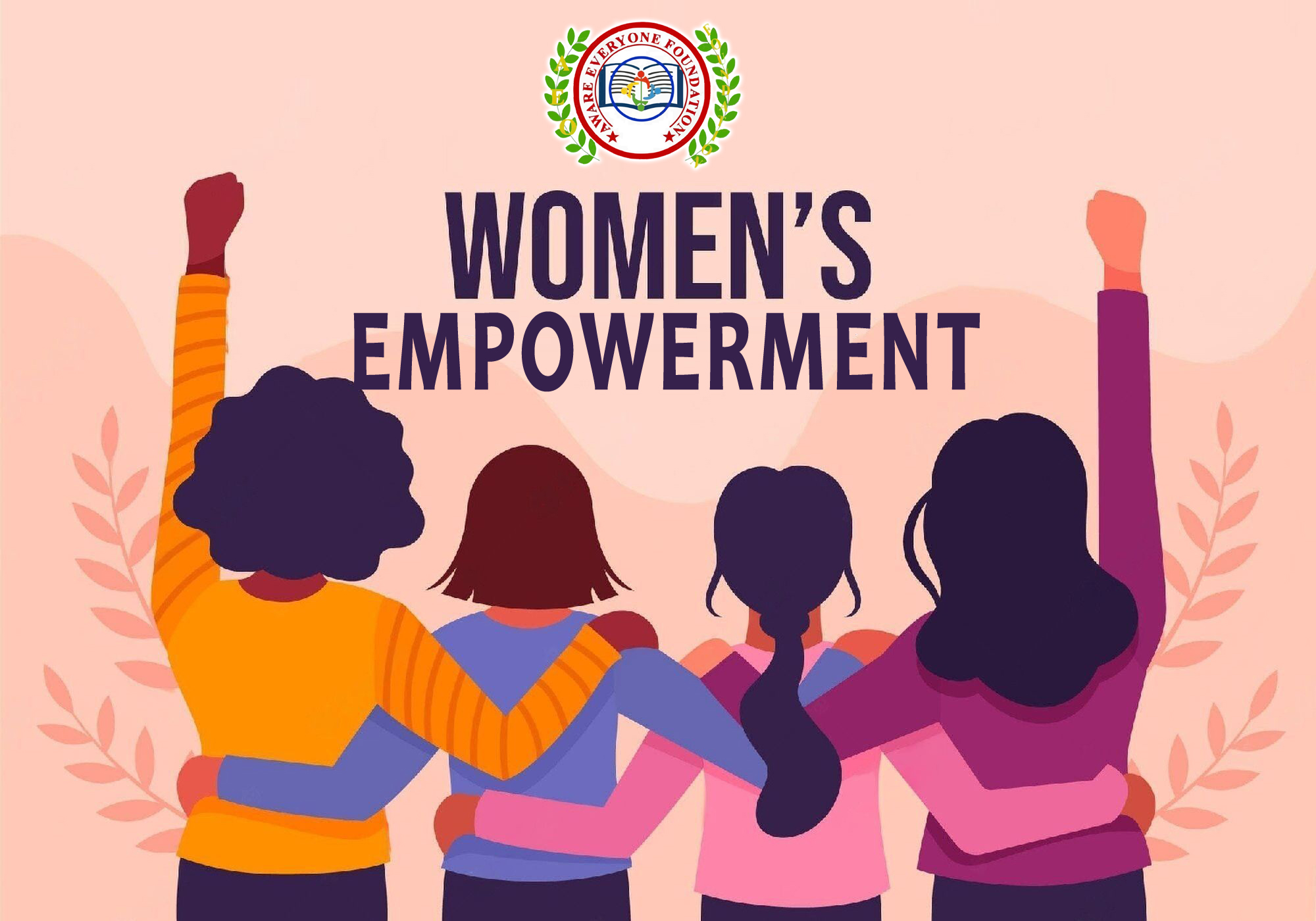Empowering Women: A Journey Towards Equality and Progress
Related Articles: Empowering Women: A Journey Towards Equality and Progress
Introduction
In this auspicious occasion, we are delighted to delve into the intriguing topic related to Empowering Women: A Journey Towards Equality and Progress. Let’s weave interesting information and offer fresh perspectives to the readers.
Table of Content
Empowering Women: A Journey Towards Equality and Progress

Women’s empowerment is not merely a social aspiration; it is a fundamental human right and a crucial catalyst for societal progress. It encompasses the ability of women to exercise their agency, make choices, and participate fully in all aspects of life, free from discrimination and violence. This empowerment is not a singular event but a continuous process that requires a multifaceted approach, addressing systemic barriers and fostering an environment conducive to women’s growth and flourishing.
Understanding the Spectrum of Empowerment:
Women’s empowerment is not a monolithic concept. It manifests in diverse ways, encompassing various dimensions:
- Economic Empowerment: This involves women having equal access to education, employment opportunities, financial resources, and property rights. It encompasses fair wages, access to entrepreneurship, and the ability to manage their finances independently.
- Political Empowerment: This dimension focuses on women’s participation in political processes. It includes the right to vote, stand for elected office, and influence decision-making at all levels of government.
- Social Empowerment: This refers to women’s ability to exercise their rights and freedoms within their communities, families, and social circles. It includes access to healthcare, education, and social safety nets, as well as the freedom from violence and discrimination.
- Cultural Empowerment: This aspect recognizes the importance of women’s voices and perspectives in shaping cultural narratives and traditions. It involves challenging gender stereotypes, promoting women’s leadership in cultural institutions, and celebrating diverse expressions of femininity.
The Importance of Women’s Empowerment:
Empowering women is not merely an ethical imperative; it is a necessity for societal development and prosperity. The benefits extend beyond individual women, impacting communities, nations, and the world at large:
- Economic Growth: Studies consistently demonstrate that empowering women leads to increased economic productivity. When women have equal opportunities, they contribute significantly to the workforce, boosting national income and fostering economic growth.
- Improved Health Outcomes: Empowered women are more likely to access healthcare services, leading to better maternal health, reduced infant mortality rates, and improved overall health outcomes for families and communities.
- Enhanced Education: Women’s empowerment fosters a more educated society. When girls have equal access to education, they become agents of change, contributing to a more informed and productive workforce.
- Reduced Poverty and Inequality: Empowering women breaks the cycle of poverty by providing them with the tools to improve their lives and those of their families. It also contributes to a more equitable society, reducing gender disparities and promoting social justice.
- Sustainable Development: Empowering women is crucial for achieving sustainable development goals. Their participation in decision-making processes ensures that environmental and social concerns are addressed effectively.
- Peace and Security: Empowered women contribute to more peaceful and stable societies. Their leadership and participation in conflict resolution and peacebuilding initiatives promote dialogue and understanding.
Challenges to Women’s Empowerment:
Despite significant progress, significant challenges remain in achieving full women’s empowerment:
- Gender-Based Violence: Violence against women continues to be a pervasive issue globally, hindering their ability to exercise their rights and live safely.
- Discrimination and Stereotypes: Traditional gender roles and societal norms often limit women’s opportunities and perpetuate discrimination in various spheres of life.
- Lack of Access to Resources: Many women face barriers to accessing education, healthcare, and economic opportunities due to poverty, lack of infrastructure, and discriminatory policies.
- Political Underrepresentation: Women remain underrepresented in political leadership positions, limiting their influence on policy decisions that affect their lives.
- Cultural and Religious Barriers: In some cultures and religions, women face restrictions on their freedom of movement, dress, and education, hindering their empowerment.
Addressing the Challenges:
Overcoming these challenges requires a comprehensive and multi-pronged approach:
- Legal Frameworks: Strong legal frameworks are essential to protect women’s rights and ensure their equal access to opportunities. This includes enacting laws against discrimination, violence, and exploitation.
- Education and Awareness: Educating both men and women about gender equality, challenging stereotypes, and promoting respectful relationships is crucial.
- Economic Opportunities: Providing women with access to education, training, and employment opportunities is essential for their economic empowerment.
- Political Participation: Encouraging women’s participation in politics through quotas, mentoring programs, and campaigns that support women candidates is vital.
- Social and Cultural Change: Challenging gender norms and promoting women’s leadership in cultural institutions are essential for achieving true empowerment.
- International Cooperation: International cooperation and collaboration are essential to support women’s rights and empower women globally.
Frequently Asked Questions:
Q: How can I contribute to women’s empowerment?
A: You can contribute by supporting organizations that work to empower women, challenging gender stereotypes in your daily interactions, advocating for policies that promote gender equality, and encouraging women to pursue their dreams.
Q: What are the benefits of empowering women for society as a whole?
A: Empowering women leads to economic growth, improved health outcomes, enhanced education, reduced poverty and inequality, sustainable development, and more peaceful and stable societies.
Q: What are some specific examples of women’s empowerment initiatives?
A: Examples include microfinance programs that provide women with access to credit, educational programs that promote girls’ education, and advocacy campaigns that raise awareness about gender-based violence.
Tips for Empowering Women:
- Challenge Gender Stereotypes: Actively challenge gender stereotypes in your own life and in society at large.
- Support Women-Led Businesses: Patronize businesses owned and operated by women.
- Advocate for Women’s Rights: Speak out against discrimination and violence against women.
- Promote Girls’ Education: Encourage girls in your community to pursue education.
- Be a Role Model: Set a positive example for girls and young women by demonstrating confidence, resilience, and leadership.
Conclusion:
Empowering women is not just a moral imperative but a necessity for a just, equitable, and prosperous world. It requires a collective effort, involving governments, organizations, communities, and individuals. By addressing the challenges and promoting women’s rights and opportunities, we can create a world where women can fully realize their potential and contribute to a brighter future for all.




![]()


Closure
Thus, we hope this article has provided valuable insights into Empowering Women: A Journey Towards Equality and Progress. We appreciate your attention to our article. See you in our next article!
